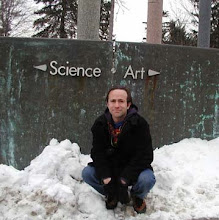(Extended version)
Had trouble making this short, so much in common between all of them, and so many different approaches at looking at things. In bringing together these different views, it provides us, the readers, with the tools to have a broad view at what's going on now and how we got there. - N
Overlaps: I find a common thread of between them all, a shared sense of empathy and concern for the plight of humanity. Although they may all offer slightly different names, each one delves into the causes behind modern society’s dehumanizing effects – the people are oppressed and freedoms and individuality lost. Dewey felt that “the society itself has been pulverized into an aggregate of unrelated wants and wills.” (21) He continues, “The creation of political unity has also promoted social and intellectual uniformity, a standardization favorable to mediocrity.” (115) This is society flattened out, rendered into tasteless mush, rather than a rich dish of distinct flavors. Finally, Dewey discussed loss of humanity, as men were becoming machines to tend inanimate machines. (175) Along these lines, Polanyi said that under production, man and nature must be transformed into commodities, “as goods produced for sale.” (136) This, he said, “would be tantamount to annihilating them” (137), and he detailed this “economic earthquake” and “destructive landslide” (164) produced by the Industrial Revolution where “under the rule of the market the people could not be prevented from starving according to the rules of the game.” (168) Furthermore, the destitution and loss of rights and liberties “were judged a fair price to pay for the fulfillment of the requirement of sound budgets and sound currencies, these a priori of economic liberalism.” (148) Benjamin is concerned with “mechanical reproduction,” and what’s been lost in it – the “aura,” a thing’s uniqueness or individuality destroyed by reproduction. (223) We might also think of him having to speak, as Kafka put it, the “Language of the Oppressor,” and how mechanical reproduction became the tool of Fascism. The cornerstone of Mills’s work deals with the ability to make decisions that affect people’s lives taken out of their hands (13) and made only to serve instead. (6) Subsequently, this led to the “transformation of the publics of America into a mass society.” (297) Marcuse describes “advanced industrial civilization” as leading to a “”comfortable, smooth, reasonable, democratic unfreedom” and “the suppression of individuality in the mechanization” of society. (1) He describes “mechanized work” as “exhausting, stupefying, inhuman slavery” (25) a “pure form of servitude: to exist as an instrument, as a thing.” (33) This “mechanized enslavement” of people is total, “not only its body but also its mind and even its soul.” (26) Their insights into the core and causes of the troubles faced when they were writing remain painfully relevant today.
Particular Similarities: I tend to see the most overlap between Dewey’s work and the others – the broad philosophical nature of his text touches on something present in all the others. The specificity of Benjamin’s piece makes it perhaps the most difficult to reconcile with the others, though he’s as concerned with all he sees as being lost to modern life. Between them, we might connect Dewey’s idea of an “aesthetic experience” to Benjamin’s concept of the “aura.” Dewey makes the distinction “between democracy as a social idea and political democracy as a system of government,” (143) which echoes what Marcuse says: “Democracy would appear to be the most efficient system of domination.” (52) An oppression via the appearance of freedom. As Mills put it, “We do not all have equal access to the means of power that now exist, nor equal influence over their use.” (22) On another note, Marcuse (33) connects the productive establishments and military for mutual growth much as Mills defines the Big 3. Dewey sees the key to breaking the power structure through education: “Every care would be taken to surround the young with the physical and social conditions which best conduce, as far as freed knowledge extends, to release of personal potentialities.” (200-1) In treating people with care – we can release their possibilities, not probabilities. This resonates with Marcuse who wrote that in order to create a free society “it must first enable its slaves to learn and see and think before they know what is going on and what they themselves can do to change it.” (40)
Divergences: At least for me, it’s hard to see much divergence between them in terms of contradictions or disagreements. But I do see them as looking at the same thing from different vantage points. Taken together, like the coming together of two (in this case more) eyes, allows for the possibility of perspective. We might also see this as overlapping pieces, building a more complete picture. To pick one area of possible divergence of the other sort, Dewey wrote, that “The formation of states must be an experimental process. … the experiment must always be retried; the State must always be rediscovered.” (33-4) I love this sense of continual discovery he expresses, and worry when “correct” solutions are proposed, that even though I agree with much of what’s said, that in setting it in stone, we haven’t created the same sorts of problems we’re trying to break free of (revolutions eating their children and all that…) In this vein of always rediscovering – Dewey identifies not just the problem or a, “how things could be different,” but the means, a process to get to a better place – Education. Of course this raises questions, as Marcuse asked, “Who educates the educators, and where is the proof that they are in possession of ‘the good?’” (41) Each thinker raises the idea that we need to question, question, question. Why are things the way they are and do they have to stay that way? We must always keep asking. – Nick

No comments:
Post a Comment